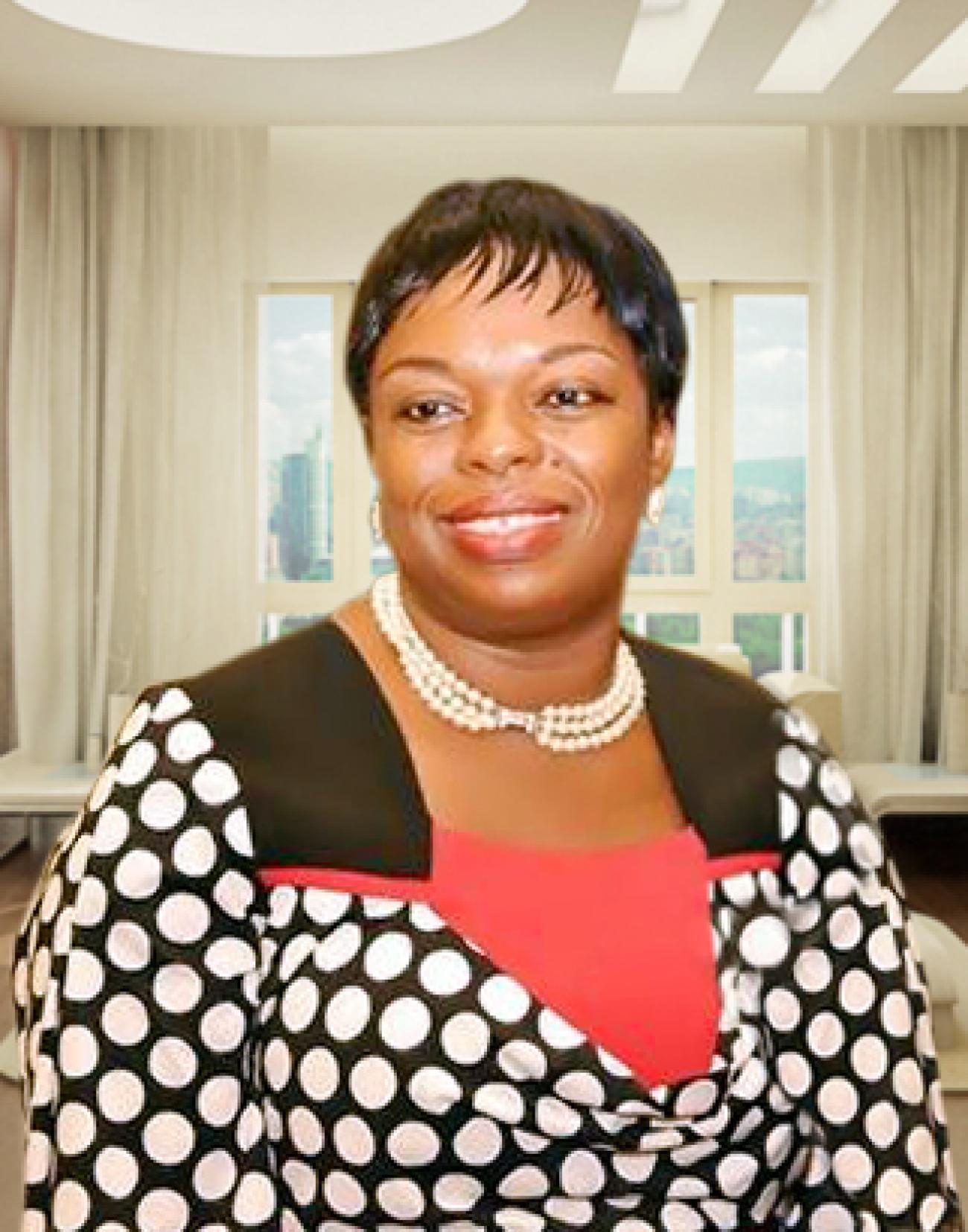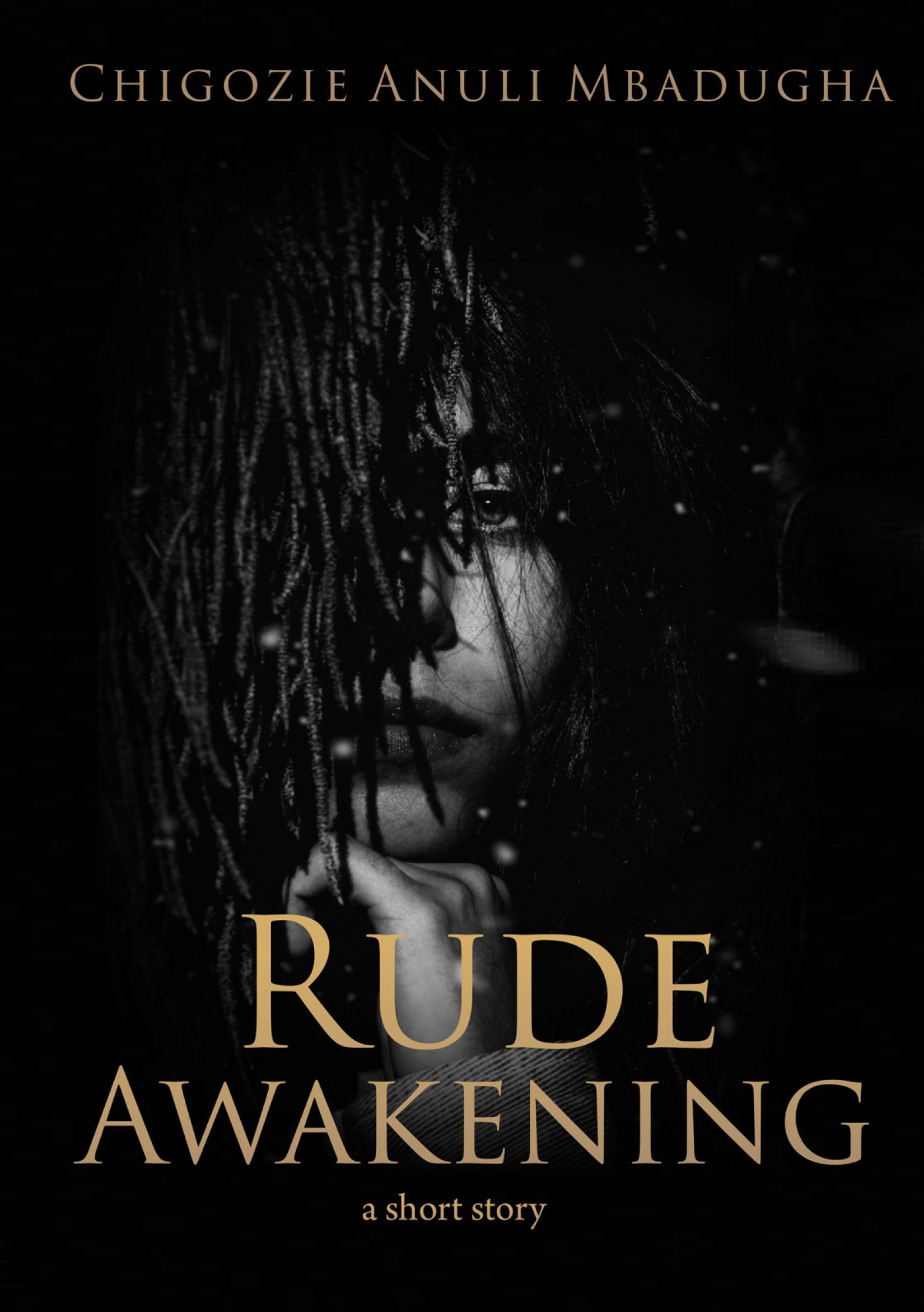SDG Book Club Interview Series: Chigozie Anuli Mbadugha

We recently spoke to Chigozie Anuli Mbadugha whose book Rude Awakening is on the English SDG 5: Gender Equality Reading List
Mbadugha is a multiple award-winning author with a natural flair for the arts. She wrote her first unpublished novel at the age of six and has been writing poems, scripts, short stories, and songs since then, which were mainly for leisure.
Her novella Rude Awakening is one of the three novellas in her series Beyond the Trial, where all three novellas are published as stand-alone books.
As part of the SDG Book Club African Chapter's Interview Series - highlighting the authors of its recent book picks - we spoke to Chigozie Anuli Mbadugha about how her book speaks to the issues of gender equality and what messages she aims to convey in her work.
What inspired Rude Awakening?
Rude Awakening was inspired by real-life stories of women I have interacted with and stories I have heard about what some widows go through. The treatment meted out to these women varies in degree, but are generally worse when they either had no children or had only female children.
Tell us something about each of the main characters:
The main characters were Nkechi Emecheta, Uzoma Kolawole, and Mama Omalicha.
Nkechi Emecheta is a young Igbo woman whose husband, Afam, dies suddenly in a road traffic accident without writing a will. His family embark on a squabble over Afam’s estate and Nkechi has a rude awakening from her expectation of support and succour from Afam’s relatives.
Uzoma Kolawole is Nkechi’s neighbour and friend who is her pillar of support in all she goes through.
Mama Omalicha is Nkechi’s mother-in-law who shares a strong bond with Nkechi and loves her like a biological daughter.
The book is part of a trilogy. Talk to us about the vision for this trilogy
The vision for this trilogy is a celebration of the resilience and grit of the African girl-child and woman who live in a largely patriarchal society and face challenges that the society is often unwillingly to discuss or ameliorate. The girl-child is expected to accept her lot silently and grows up with experiences that she is afraid to share and therefore cannot get help and healing from. The books in this trilogy, though available as standalones, share this unifying theme of strong African women who refuse to let setbacks, mistakes, and challenges define their lives! Whether it is teenage pregnancy and peer pressure they face (as in Erased Reproach), gender discrimination (as in Rude Awakening), or domestic violence (as in Shadows From the Past), these women rise from the ashes of their circumstances transformed and ready to blaze new trails!
What influenced your decision to take up the SDG challenge?
I took up the SDG challenge because I wanted to share this story with African children. The people who craft and implement unjust inheritance laws that foster gender discrimination were children before they became men and women. I believe that to change the present narrative, we need to start mindset adjustment and reorientation early. If children see the deleterious effect of these inheritance laws and gender inequality on children, they are more likely to be empathetic and perhaps can grow up to become passionate advocates for gender equality and social change.
How were you able to create a fusion of entertainment, education and information to advance an understanding of SDG 5 principles – gender equality and the empowerment of all women and girls?
I consciously reminded myself that even though I was exploring serious themes such as loss, abuse, and gender discrimination in Rude Awakening, I needed to entertain readers. I wanted readers to find the story captivating enough to go beyond the first few pages of the book while being educated and informed about the cultural issues I was bringing to the front burner.
Tell us about carrying out research for your book and the process of producing the book.
I researched by reading about Igbo culture and inheritance laws in South-East Nigeria. I also interviewed some elderly family members about the themes I explored. Members of my editorial team read the book and provided valuable individual feedback and critiques of the manuscript. The process of producing the book was rigorous, but I avoided unnecessary haste and cutting corners.
How has Rude Awakening been received so far?
Rude Awakening has been well received so far. It was initially published as part of a short-story collection titled Beyond the Trial. Beyond the Trial received the Samuel Ajayi Crowther Award in 2017 and has been used as a text in several universities in Nigeria. I have had feedback from some readers who went through experiences similar to those of the female protagonist in the book. Some of them, whose stories were unknown to me, said they felt I was writing about them.

How do you envisage the impact of the book’s status as an SDG Book Club pick?
Rude Awakening’s status as an SDG Book Club pick will help promote it beyond the shores of Nigeria to other African countries. The themes and events highlighted in Rude Awakening occur in several African countries. I look forward to seeing Rude Awakening in reading clubs and schools in Africa and beyond. It is already available in digital format and I am happy to partner with booksellers and publishers in other African countries for book distribution and translation rights. I am also not averse to collaborations that will make Rude Awakening accessible to visually impaired readers.
What was your ambition when you were younger?
I had a desire to be a theatre artist at one time in my life, but there were also other ambitions I entertained at different times of my life – including being a star athlete. It took several failed attempts at athletics for me to come to the sad realization that my talents lay elsewhere. In all these career considerations, my love for reading and writing fiction never wavered.
What words of encouragement do you have for young readers and aspiring writers?
I would like young readers to explore books written by authors from other African countries and to read books in other genres. Aspiring writers should try to write more and not give up. Having supportive friends or fellow writers as cheerleaders can encourage aspiring writers to keep writing when they feel untalented or unsure of themselves. The truth is that no one was born a great writer. It is an acquired art that can be learnt by attending courses and working hard to improve oneself. Giving up is not an option!
Chigozie's poem, The New Yam Festival, won second prize in a nationwide poetry competition in 1983 and she was the recipient of the silver prize at the Kanagawa World Biennial Children’s art competition in Japan in 1987.The rigours of medical school and residency training made her writing sporadic for several years. A long distance rural post-residency posting requiring about six hours of commute to and from work, provided writing time for Chigozie in the back seat of a car and in the tremendous heat of Lagos traffic.
Her debut publication Beyond the Trial was awarded the Samuel Ajayi Crowther prize in 2017. Beyond the Trial is a collection of three novellas with a unifying theme of female empowerment. The UN SDG 5 Book Pick Rude Awakening is one of the three novellas in Beyond the Trial. All three novellas have also been published as stand-alone books. Her drama entry for the African Human Rights Play-Writing Contest 2021 titled I Should Have Been Enough made the final shortlist in the competition.
By profession, Chigozie is an ophthalmic surgeon and an avid researcher. She draws inspiration from God and from the love of her family.
This story was written by Olatoun Gabi-Williams for Borders Literature for all Nations, one of the organizing members of the SDG Book Club African Chapter.
Written by


